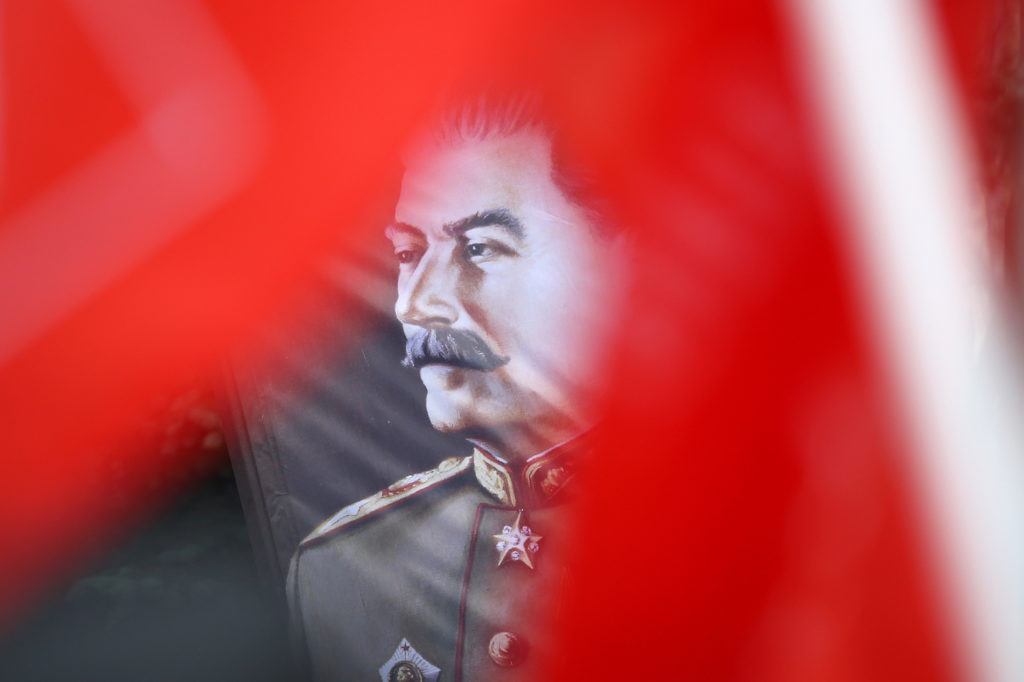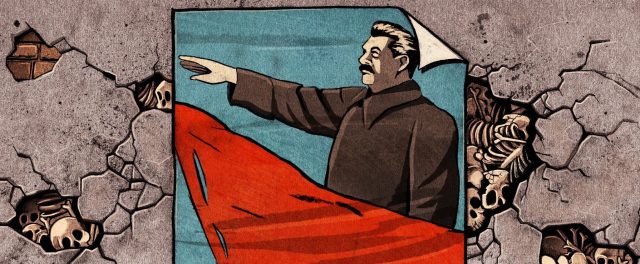Illustration by Ben Jennings

Online now (eg on iTunes) is the latest of UnHerd’s audio documentaries.
Presented by Douglas Murray and produced by Sean Glynn – and which you can listen to, via Soundcloud, below – examines our failure to remember the victims of communism, in the way that we, rightly, remember the victims of Nazi-ism.
Within this 35 minute production, Douglas travels to Budapest and to that city’s House of Terror museum. It is actually the location in the heart of the Hungarian capital where, first, the country’s fascists tortured and imprisoned their opponents and, later, using similar techniques and often against the very same people, communists sought to neutralise their opponents. Very unusually the museum, open since 2002, records the horrors of the two periods in Hungarian history, by the two sets of totalitarian ideologies, with equal prominence. Having travelled to Budapest myself, a couple of years ago, I can testify to what Douglas recounts in the documentary – it’s a harrowing experience to witness the parallel barbarities under the roof where they were carried out.
Talking to a wide range of people including David Aaronovitch, Anne Applebaum, Janos Horvath, David Pryce Jones and Giles Udy, Douglas explores why the communist ideology that killed many more people than Nazi Germany – and in many more parts of the world, from Russia to China and to Cambodia – is so poorly remembered in art, education or in public monuments and museums. He begins by noting that young people in Britain might overwhelmingly and correctly identify Adolf Hitler as a source of evil. Most, tragically, don’t even know who Lenin or Mao or Pol Pot are.
In modern day Russia, “comrade Stalin” is almost hero worshipped with 38% believing that the former leader of the Soviet Union was and is the most outstanding person of history. Douglas and his guests attempt to understand why communist leaders, at least as soaked in human blood as Adolf Hitler, have got away with their crimes. The common explanation is that, unlike Nazism, the communist goal of equality excuses those who allegedly sought it and helps explain why communism remains attractive to so many young people who wear ‘CCCP’ on their t-shirts or to British Labour Party leaders who attend communist-sympathising May Day gatherings. In reality, the pursuit of that goal makes communism more dangerous. It gives the thugs that inevitably lead red-starred regimes to have the ends-justifying-means excuses to kill, starve, torture and imprison anyone who gets in their way.
I also believe that there is a reluctance among some western governments to build museums to communism’s victims when, for example, they are trying to kow tow to what is still a communist regime in Beijing.

Tomorrow, Douglas will use his regular Friday slot to write about his documentary. Then, throughout next week, we’ll publish other features on this topic. We will, for example, note the unique nature of the Nazi attempt to exterminate the Jews and will also explore the appropriateness of attempts by the likes of James Bartholomew to establish a Museum of Communist Terror in London.
Other UnHerd documentaries

This is the fourth of UnHerd’s audio documentaries – all produced for us by Sean Glynn.
- The first examined whether a rolling, 24/7 news culture is damaging western democracies.
- The second – presented by Juliet Samuel – assessed the health of our capitalist economic system ten years after the crash.
- The third – presented by our technology editor, Nigel Cameron – looked at the case for (and against) Facebook’s Mark Zuckerberg becoming the next US President.
You might also be interested in the short film we made about the pioneering anti-monopolies journalist – Ida Tarbell.
Please go to our podcasts and videos page for more – or follow us on Twitter to ensure you learn quickly about all of UnHerd’s podcasts, articles and events.










Join the discussion
Join like minded readers that support our journalism by becoming a paid subscriber
To join the discussion in the comments, become a paid subscriber.
Join like minded readers that support our journalism, read unlimited articles and enjoy other subscriber-only benefits.
Subscribe